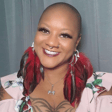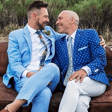
Inclusive Health for All Bodies And Breaking Free from Diet Culture with Dr. Lisa
SUMMARY
Welcome to another episode of Dirty Money with Bevin and Mike! Today, Bevin and Mike sit down with Dr. Lisa, a physical therapist advocating for inclusive health practices. This conversation dives deep into the challenges of fatphobia, weight stigma, and the harmful impact of societal norms on personal well-being.
Dr. Lisa shares her expertise on trauma-informed care, empowering listeners to embrace self-compassion, challenge toxic diet culture, and prioritize holistic wellness. We’ll discuss the many parallels between working towards physical health and financial health. This episode is full of insights, personal anecdotes, and actionable steps toward reclaiming health and happiness for all bodies.
TOPICS
[1:32] Introduction to Dr. Lisa
[3:28] Challenges with Fat Phobia and Weight Stigma
[9:15] Empowerment through Advocacy
[15:10] Healing Relationships with Money and Health
[23:15] Individualized Approach to Coaching
[32:55] Rooting Goals in Values and Purpose
[43:55] Living a Soft Life Under Capitalism
[53:10] Actionable Steps Towards Wellness
RESOURCES & LINKS
Connect with Dr. Lisa
Instagram: @healthyphit
Website: www.healthyphit.com
Journal: Body Respect Journal
Other Resources Mentioned:
- Money Magic: Practical Wisdom and Empowering Rituals to Heal Your Finances Jessie Susannah Karnatz
- The Nap Ministry (@thenapministry)
CONTACT INFO
Bevin Morgan:
Instagram: @bevinmorgan & @temple_eanna
Website: www.templeeanna.com & BevinMorgan.com
Mike Poulin:
Instagram: @mjpou56
Dirty Money Podcast:
Instagram: @dirtymoney_podcast



















